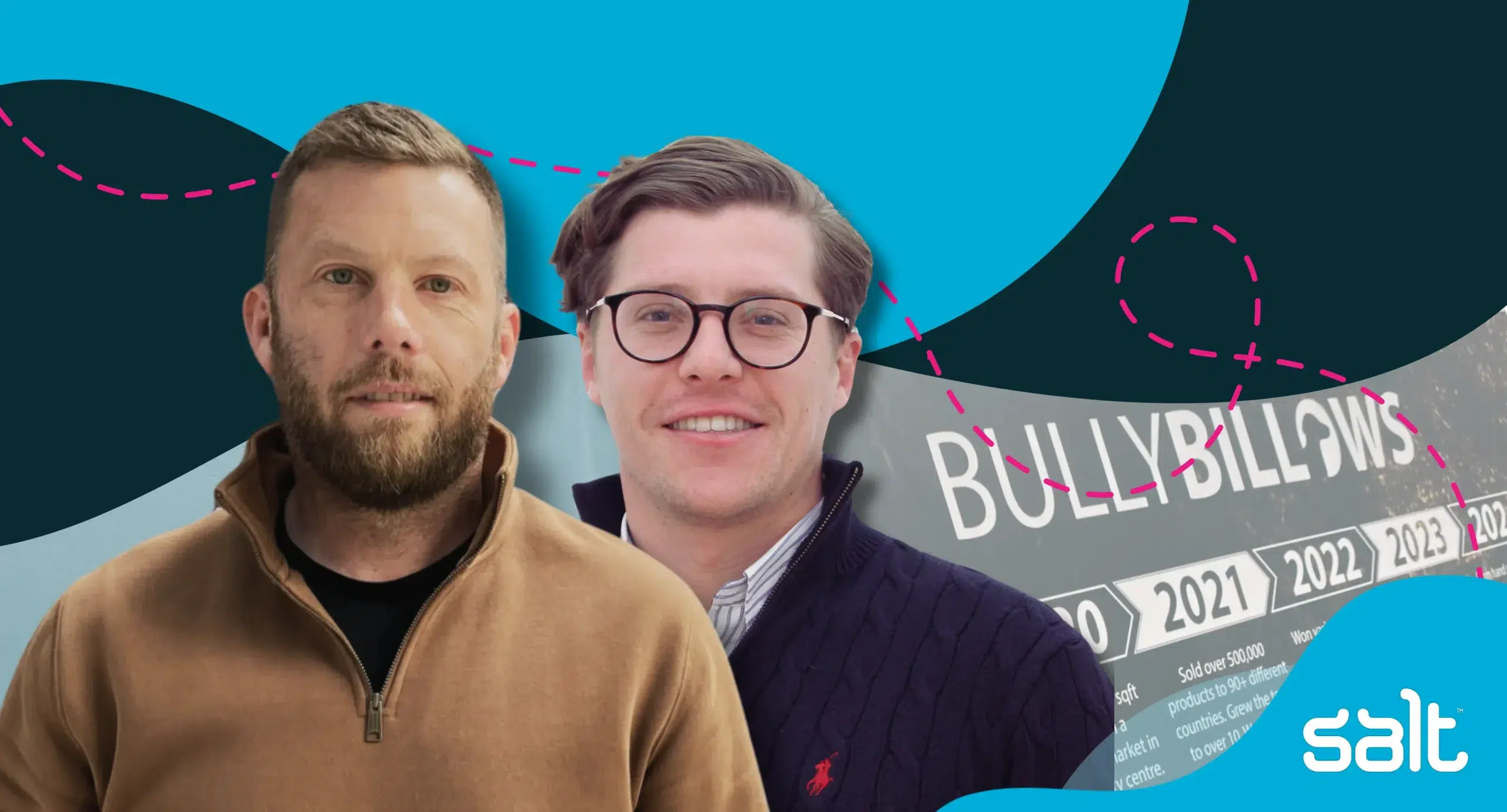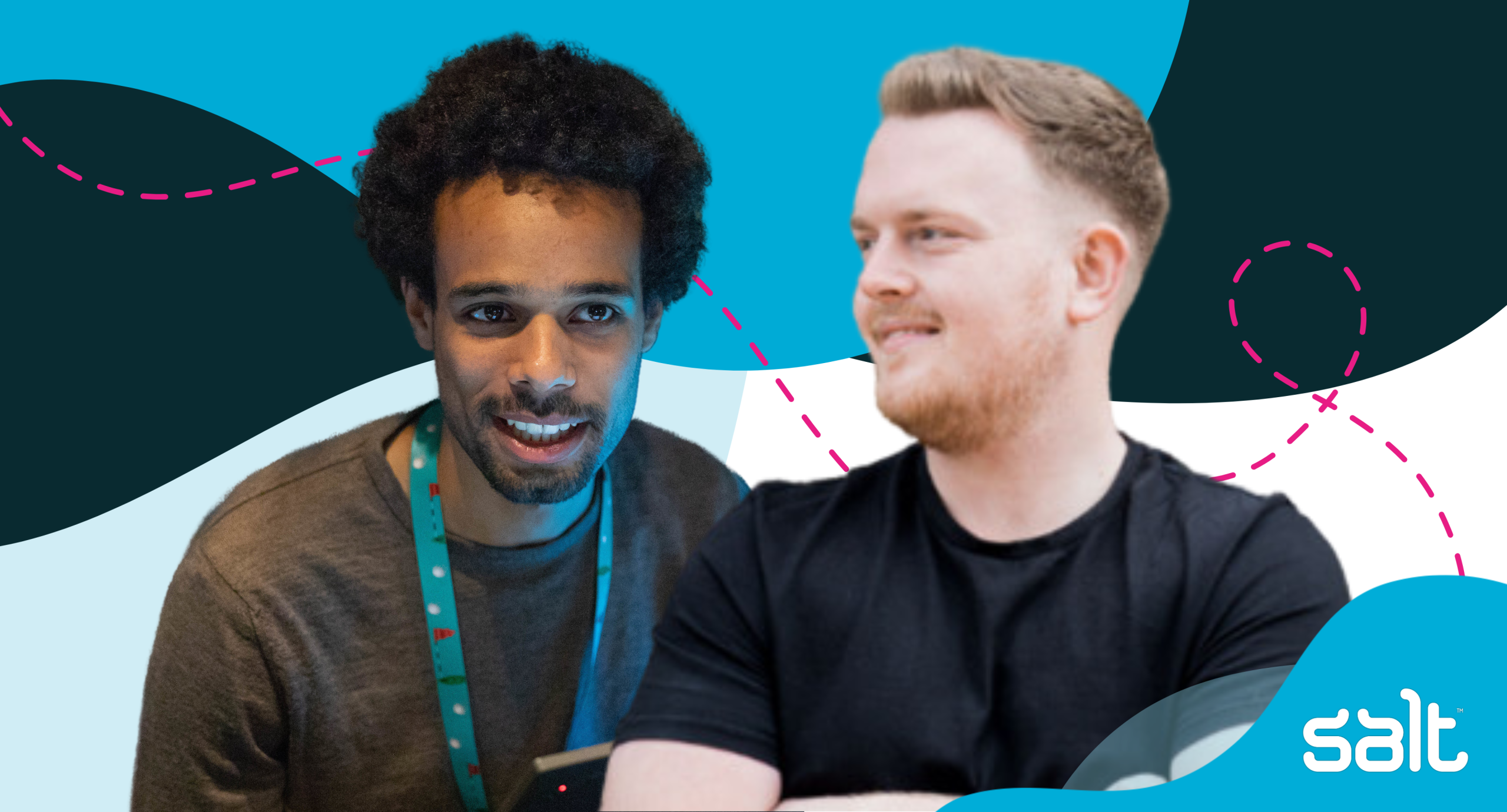
The future is neurodivergent. Numbers of diagnoses in the UK and around the world are rising – and many go undiagnosed. There are talented people behind these numbers who deserve work opportunities, and who can bring real value to your business. Here’s why and how your business should be preparing.
Ambitious about Autism is a charity dedicated to supporting autistic children and young people by championing their rights and creating opportunities. Salt UK have been fundraising throughout 2023 to support their services – here’s how to support their work.
Listen to our podcast interview with their Programme Manager Nicole Curtin to hear how and why it’s so crucial businesses embrace the neurodivergent future now. She shares her professional and personal experiences, expert advice on hiring and workplace inclusivity, and success stories from businesses she’s partnered with through this inspiring charity. Available wherever you get your podcasts!
Introducing Nicole
My name is Nicole Curtin and I’m the Programme Manager for the Employ Autism Programme at Ambitious About Autism. I work with employers and autistic young people to find and create inclusive employment opportunities.
I’ve been working with disabled children, young people, and adults since about 2008 in various capacities across the charity, public, and private sector. Autism has always been a continuous thread through the work that I have done.
There are several people in my personal life who are autistic and I myself have ADHD. Having a lot of diverse experience before this role has made me so much more conscious of co-creating with autistic people and centering their voice.
The future is neurodivergent. What does that mean for businesses?
Businesses are going to have to adapt, or they’ll be left behind.
We underestimate the number of neurodivergent people there are.
A frequently used statistic is that 1 in 100 people are autistic. But that is probably a significant underestimation.
Currently, there’s approximately 140, 000 people on the waiting list for an autism diagnosis in the UK, with referrals in some NHS regions having risen 80 percent in 2023 alone. Data coming out of the US currently is that around 3 percent of 8-year-olds are autistic. Women and girls, as well as other marginalized groups, are also underdiagnosed.
It’s been estimated that approximately 15 percent of the population are neurodivergent, but that is not taking into account anyone who is undiagnosed.
Based on those that are diagnosed, ADHD affects around 4 percent of the UK population and is on the rise significantly. Dyslexia affects approximately 10 percent of the UK population, Dyspraxia 6%, Tourette’s 1%, and these are some other neurodivergent conditions.
What we do know is children become adults. So, if a high number of them are neurodivergent, those eight-year-olds in 10 to 15 years’ time are going to make up a significant proportion of an early careers workforce.
Those businesses that are adapting their systems and processes now to better support autistic and neurodivergent candidates and employees are future proofing their businesses.
What do you feel is being misunderstood about neurodiversity and inclusion?
The main thing that I would like for people to take away from this interview is that this is about humans at the end of the day.
We can talk about the economic impact of being neuroinclusive. We can share important statistics, like the fact that only 29 percent of autistic people are in employment. But what do those numbers actually mean? What does that look like?
That’s real people. That’s your sister, your brother, your friend, your cousin, your mom, your dad. These are all real-life human beings.
At the end of the day, it’s about being a good human and having compassion and respect for other people. That’s what it boils down to. Our working life is just part of that.
What needs to happen now for a more neuroinclusive future?
What we have at the moment is a decent amount of awareness about neurodiversity. Most people have heard of autism. They have a rough idea of what it is. They’re getting to that place of understanding.
But there still needs to be more work done around that. People really need to push their understanding and challenge their preconceptions and stereotypes.
People fear what they don’t understand and then that results in inaction.
People need to go out of their way to learn more and to hear from autistic voices to get to a place of acceptance. After that, it’s about committing to going one step further and really embracing neurodivergent people as part of your company, as part of your life, as part of society.
Partnering with Ambitious about Autism: a success story
We’ve been working with a large global employer partner for the last year or so. It was one of the first partners that I worked with when I joined the company, and they’ve been really great to partner with. They’ve been really responsive to our feedback and the changes they could be making to their recruitment process. In the last couple of weeks, they’ve been interviewing candidates. They’ve had 2 roles available that we’ve helped them advertise.
A parent of one of the candidates shared their son’s experience of interviewing with this employer on LinkedIn. He’d had over 100 interviews. That wasn’t an exaggeration. That was the position that they’re in. They’ve been struggling to find work for a while.
This was the first interview that they had felt that had taken inclusivity seriously, provided meaningful accommodations and shown that they truly understood neurodivergent people.
They shared that this was first time that their son had come out of an interview with more self-esteem than going in.
I don’t know if that candidate will be offered the job, but what I do know is that that was a successful experience for them. And that can really be the tipping point for someone. Obviously, it’s wonderful if you can go into a fabulous interview and then get the job, but actually so much of this is about confidence and self-esteem and worthiness and feeling part of something. So, even if they don’t get the job, they’ll feel like, “I will still have opportunities, people are interested in me and what I have to say”.. I think that that is just as valuable for that person.
How can businesses get involved with Ambitious about Autism do?
Visit us at ambitiousaboutautism.org.uk to learn more about what we do and how you can support us.
Partner with us! Visit our employment pages to learn more about autistic hiring and the difference you can make, including the Employ Autism Programme and how to offer a placement with us. You can also email the team at ean@ambitiousaboutautism.org.uk
Reach out to me on LinkedIn! I’m always happy to have a chat and go over anything employment, autism related and probably lots of other things as well.
Follow Ambitious about Autism on LinkedIn to keep up with what we’re doing. We’re launching a series of webinars for autistic job seekers to share information and upskill.
Most importantly, do the work. Whether you work with us or not, make this happen. Get autistic people into your company, start making your environments more inclusive.
Hiring? Salt connects you to outstanding top talent worldwide
If you’re interested in hearing about how Salt’s top talent recruitment experts around the world can help with your hiring right now, get in touch. Click below to contact the closest Salt team to you!
- Australia
- Canada
- Belgium
- Europe
- Hong Kong
- Malaysia
- Middle East and North Africa
- Netherlands
- New Zealand
- Singapore
- South Africa
- United Kingdom
- United States
Keep up with Salt’s top talent job market insights and hiring advice! You can keep in the loop by following us on. LinkedIn, YouTube, Facebook, Instagram, and Spotify.


